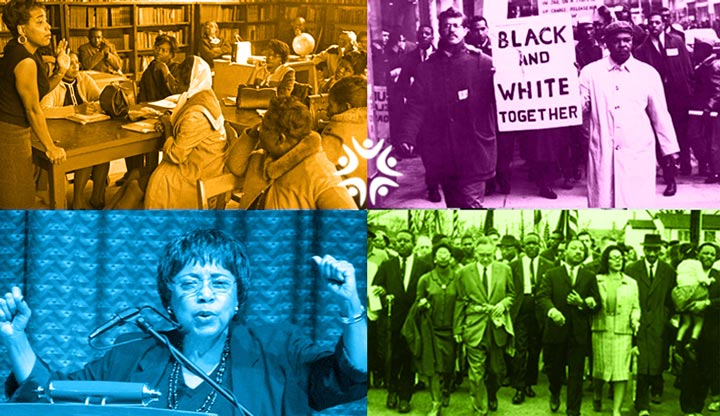In Dorothy Cotton’s Own Words (2012)
One day not long ago I felt a strong desire to revisit the Dorchester Center [in Georgia], where great, important work happened – work that helped change our country… As I stood in the room where we gathered regularly each month for eight years, I saw and felt the energy of those times again … I was not conscious then of the great importance of our work, that it would be studied and written about for generations to come. We had a fire in our souls and just had to do what we did. I know now that when I took other jobs, I was just taking a break from what I was called to do.
I was transformed forever, just as our eight thousand participants were also transformed by involvement in a people-changing, country-changing experience. Standing in the great room at the Dorchester Center caused me to consider some specifics of what we learned there:
♦ We learned that we could make the road by walking it. We didn’t know everything up front. There was no blueprint.
♦ We learned that we had, and still have, more power than we knew. The more we got involved, acted, and came together, the stronger we felt. We realized a new definition of power.
♦ We learned that we could change patterns and structures, no matter how deeply entrenched they were.
♦ We learned that we could use our impatience and anger to empower ourselves to act for change.
♦ We learned that we could confront the powers that be from an understanding of nonviolence—satyagraha, as Mahatma Gandhi called it.
♦ We learned that we could develop whatever skills we lacked when there was work to be done.
♦ We learned that we could act from our capacities, rather than from some deficit attributed to us by others.
♦ We learned that we have government “by the people” only if we make it so, giving life to this great concept.
♦ We learned that one is not alone. If one takes some steps to bring about positive change, others will join in the action.
♦ We learned that when we are serving, giving our life and energy to something that is important to us as well as to others, life is meaningful. And that we can’t be bored giving ourselves to positive, transformative work.
♦ We learned that our freedom struggle was an idea whose time had come. As Dr. King liked to say, “The zeitgeist was upon us.” The spirit of the times unfolded with breathtaking power.
♦ We learned that when those who are victimized become committed to changing an unjust and brutal system, no longer accepting victim status, change happens. Systems that maintain patterns of injustice will have to change.
Source: Dorothy F. Cotton, If Your Back’s Not Bent: The Role of the Citizenship Education Program in the Civil Rights Movement, Atria Books, 2012, pp. 279-84.

